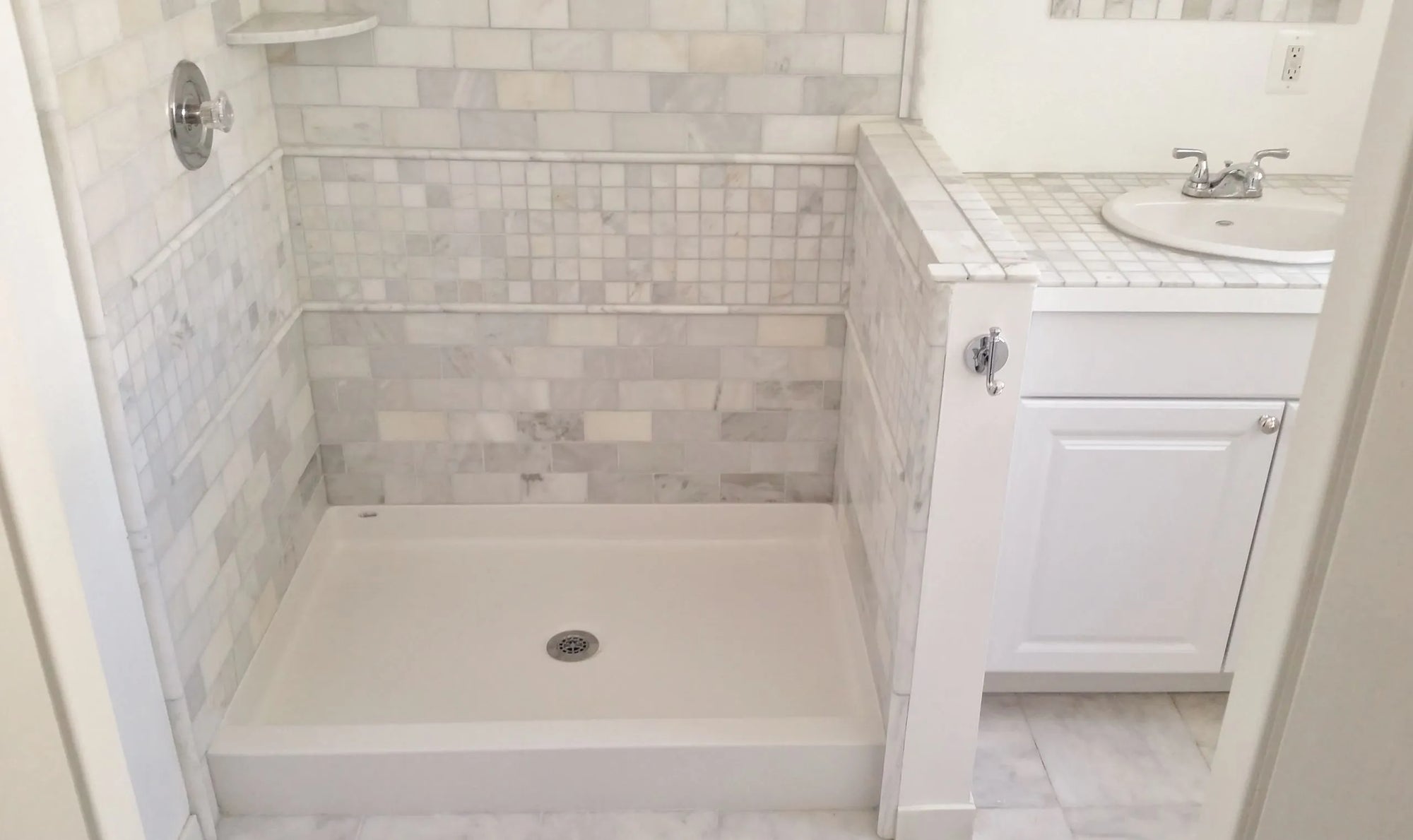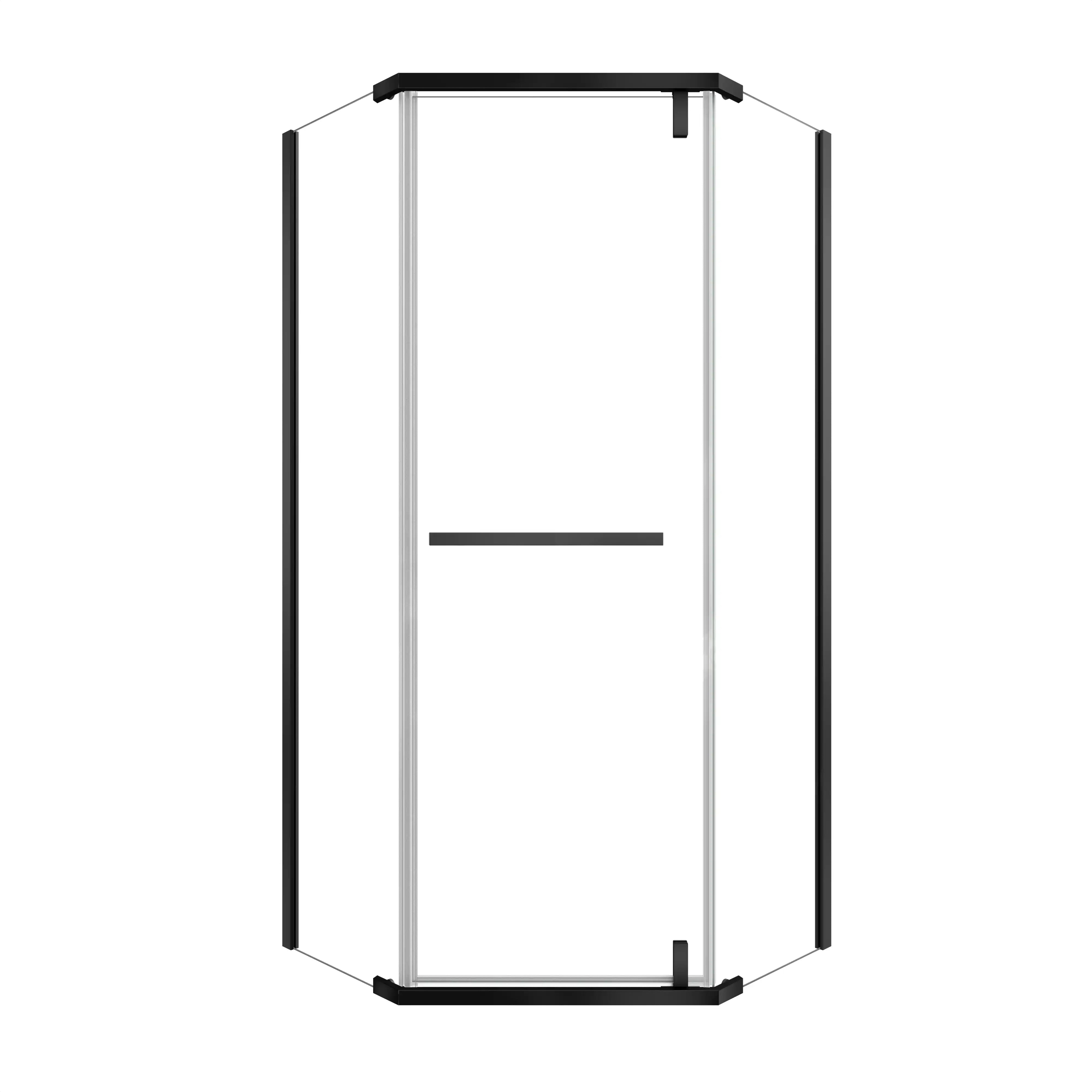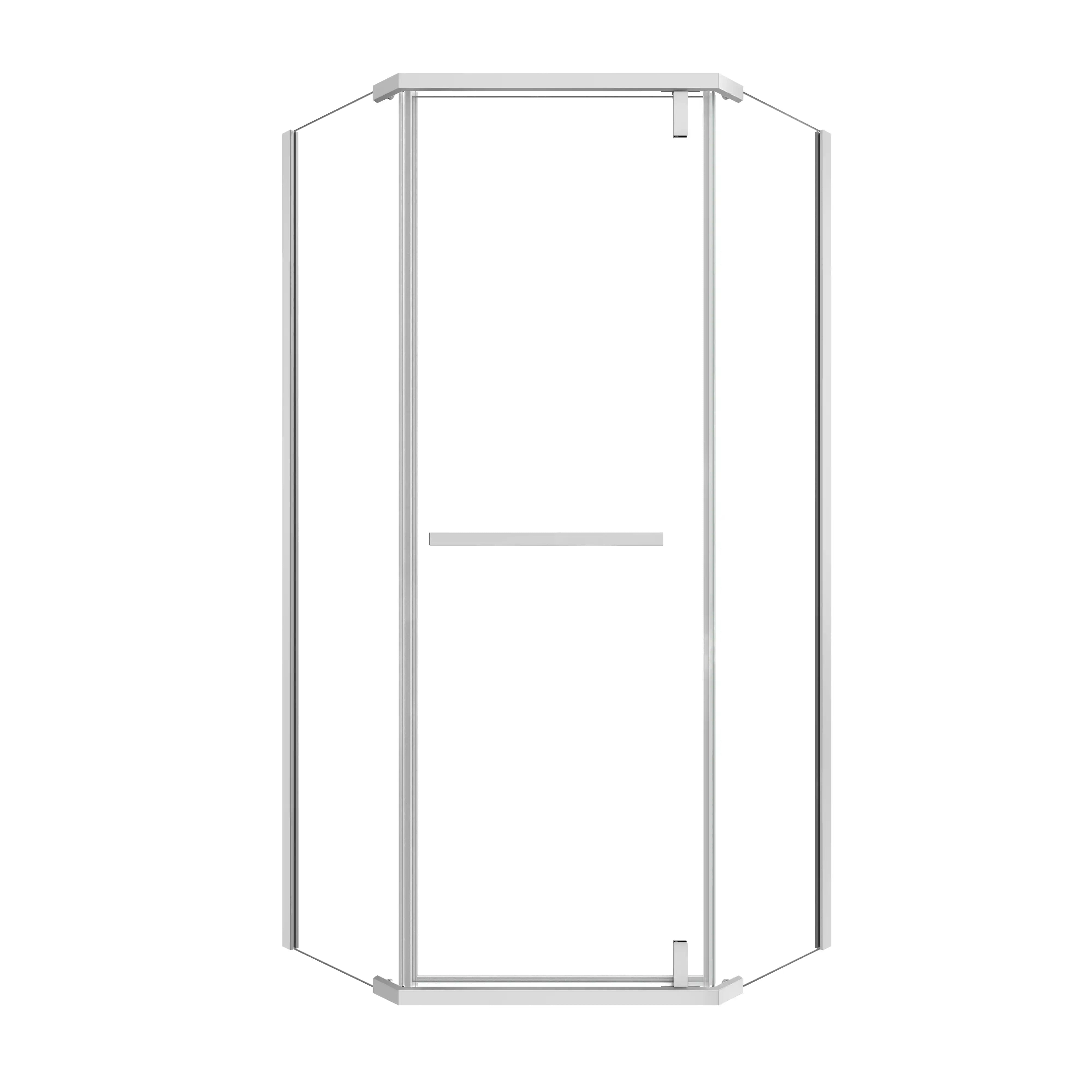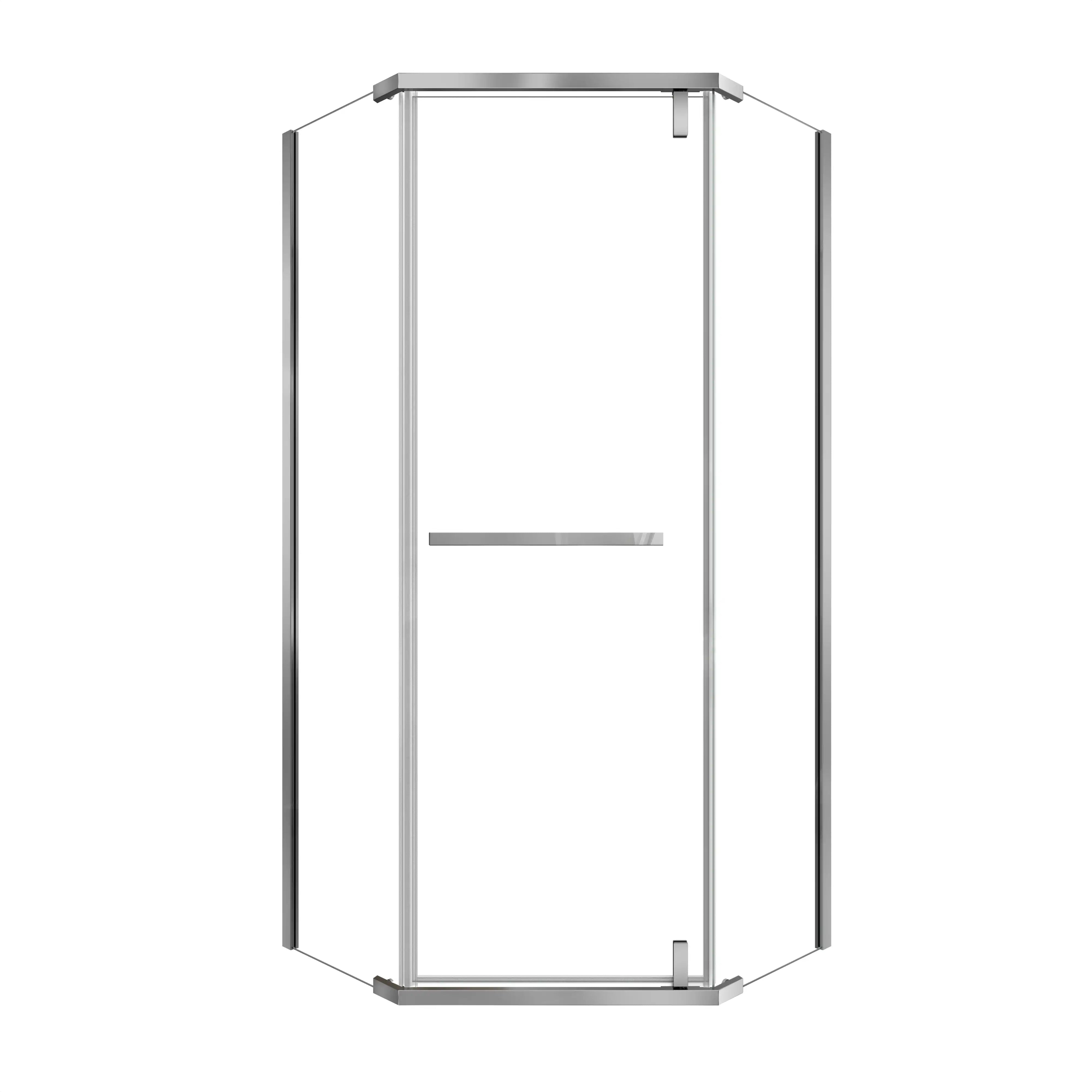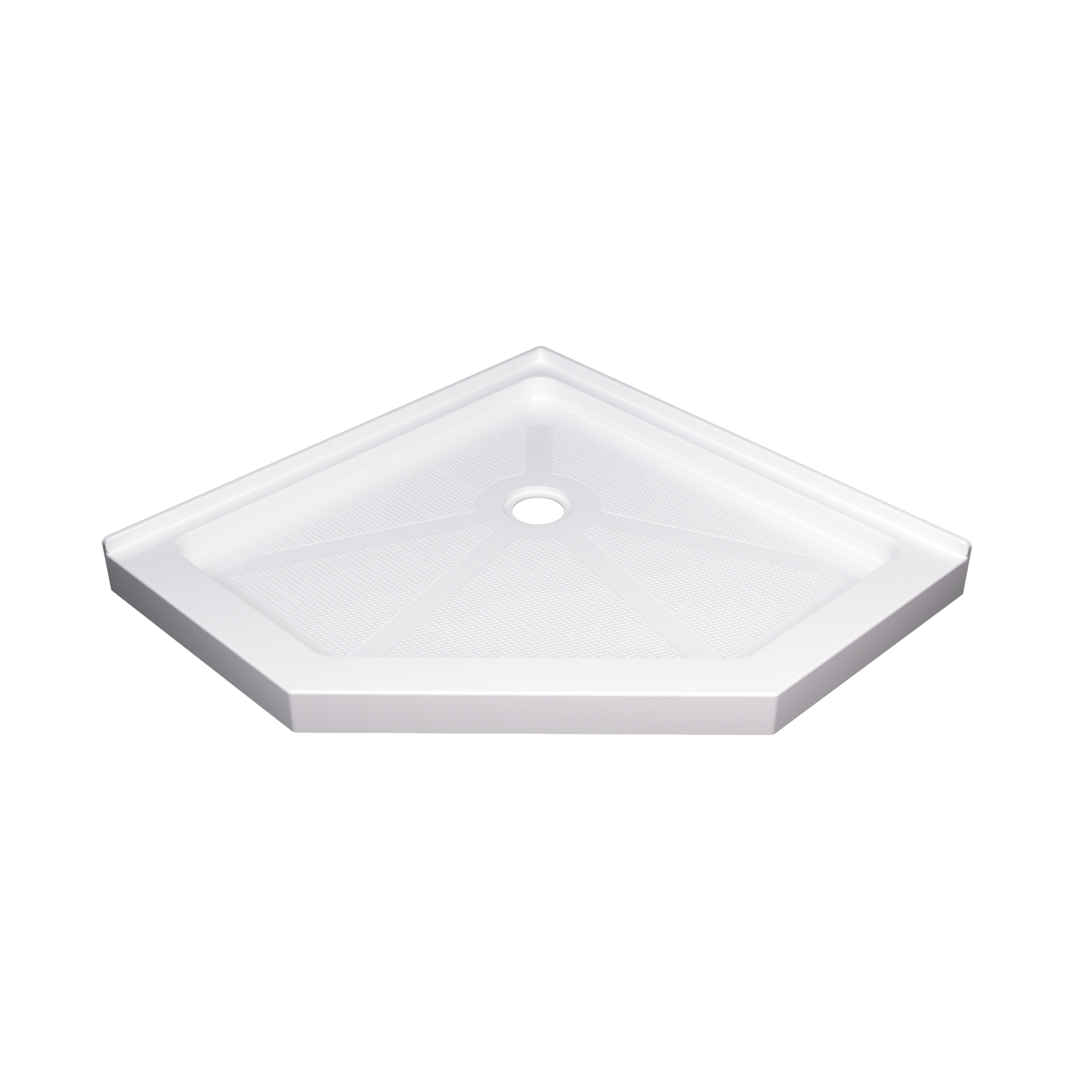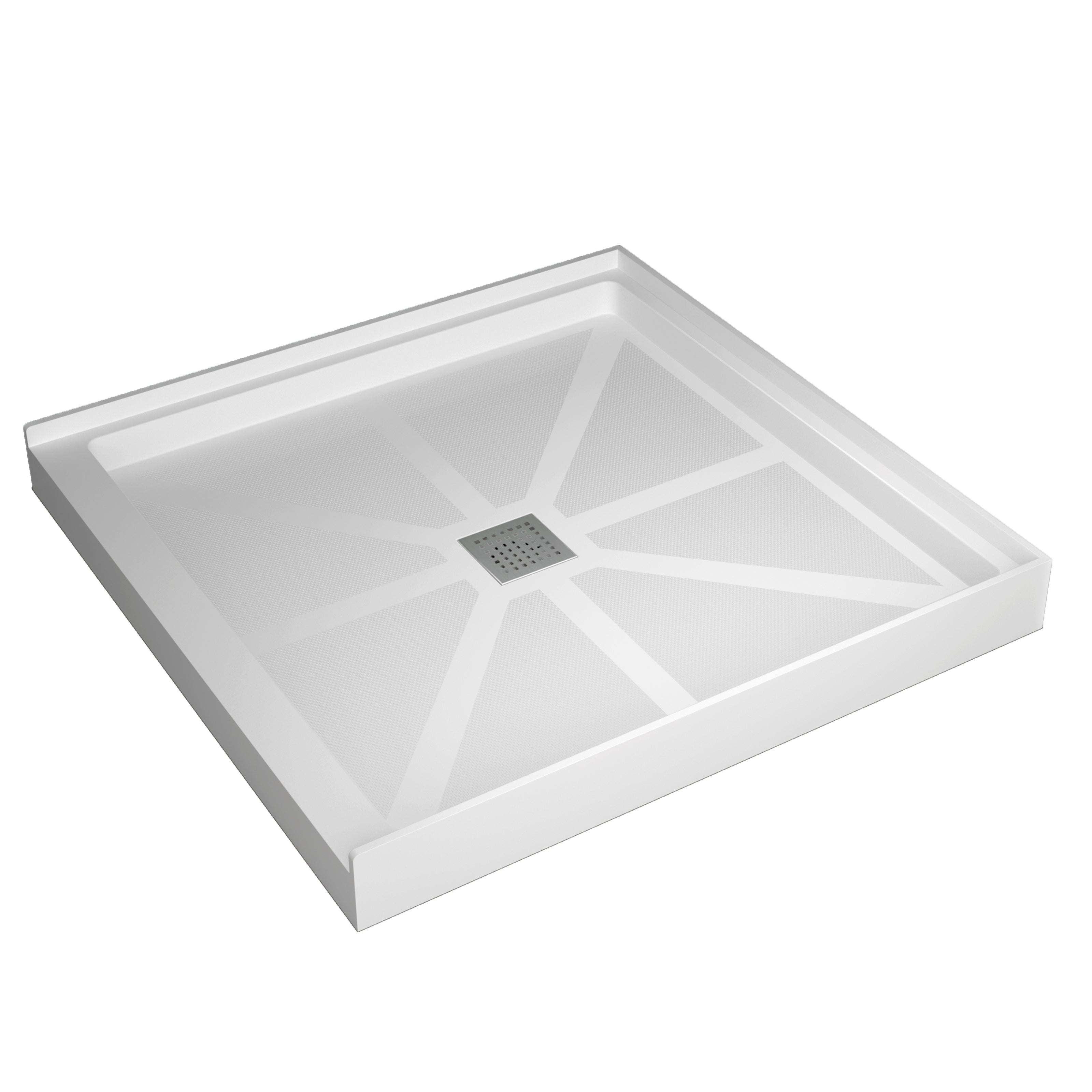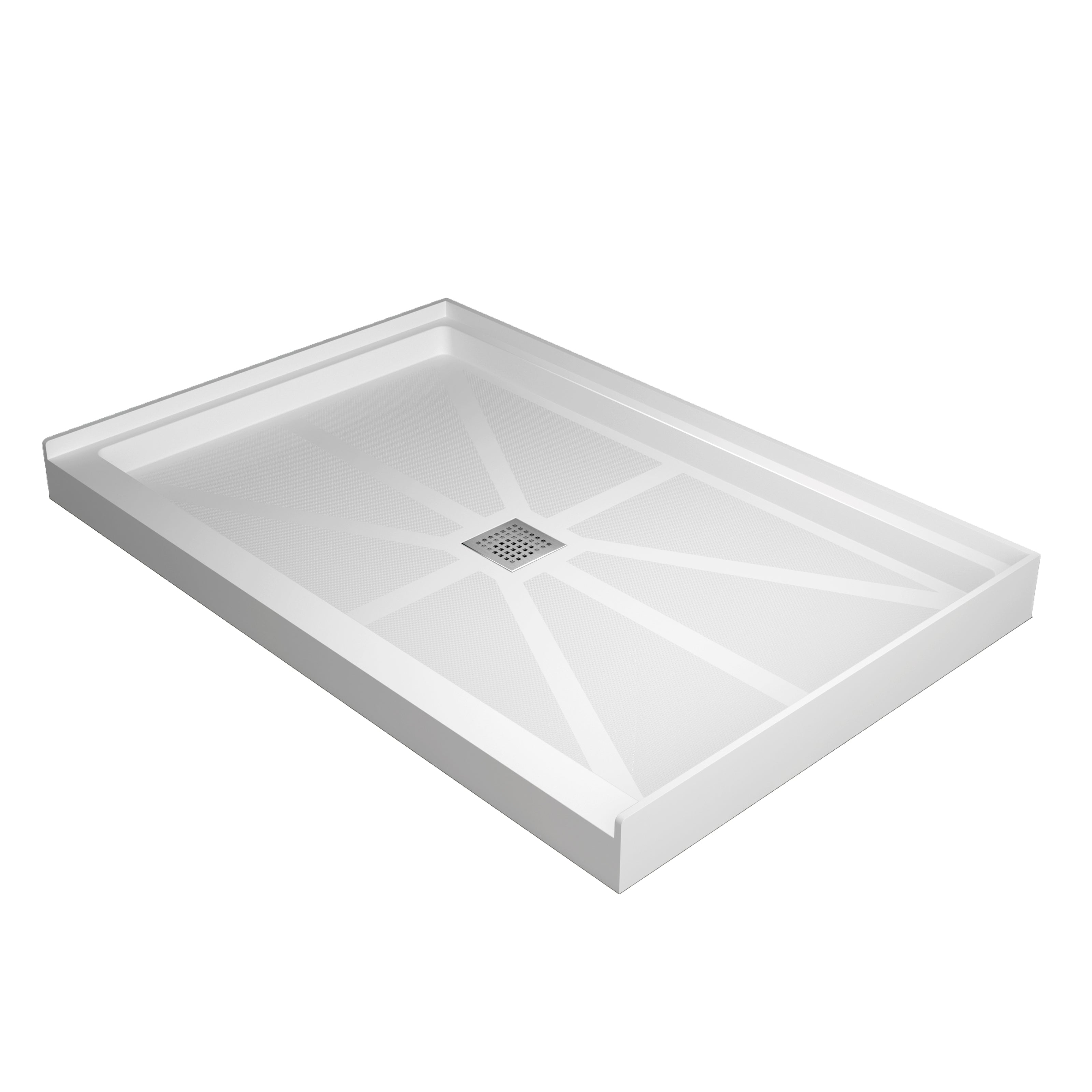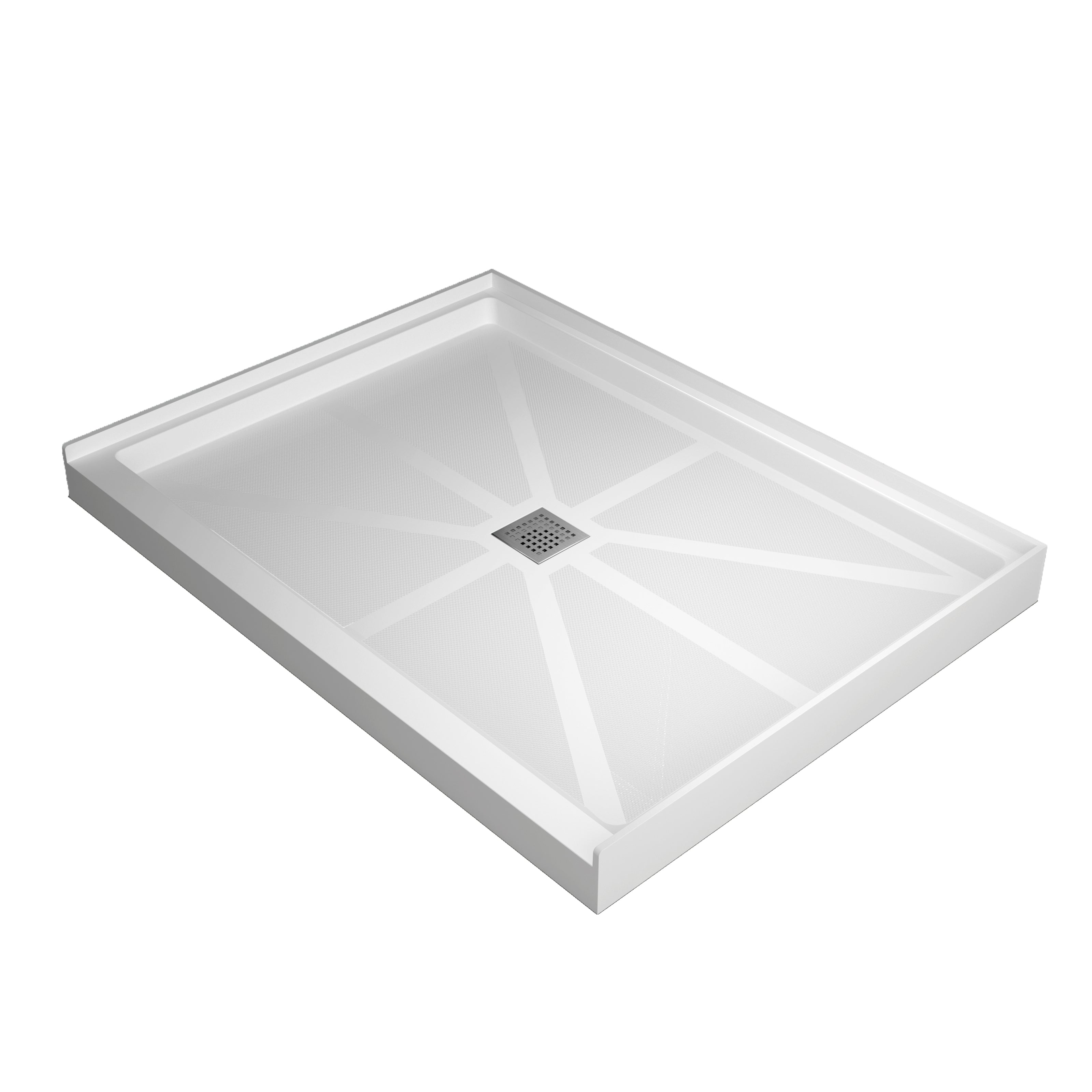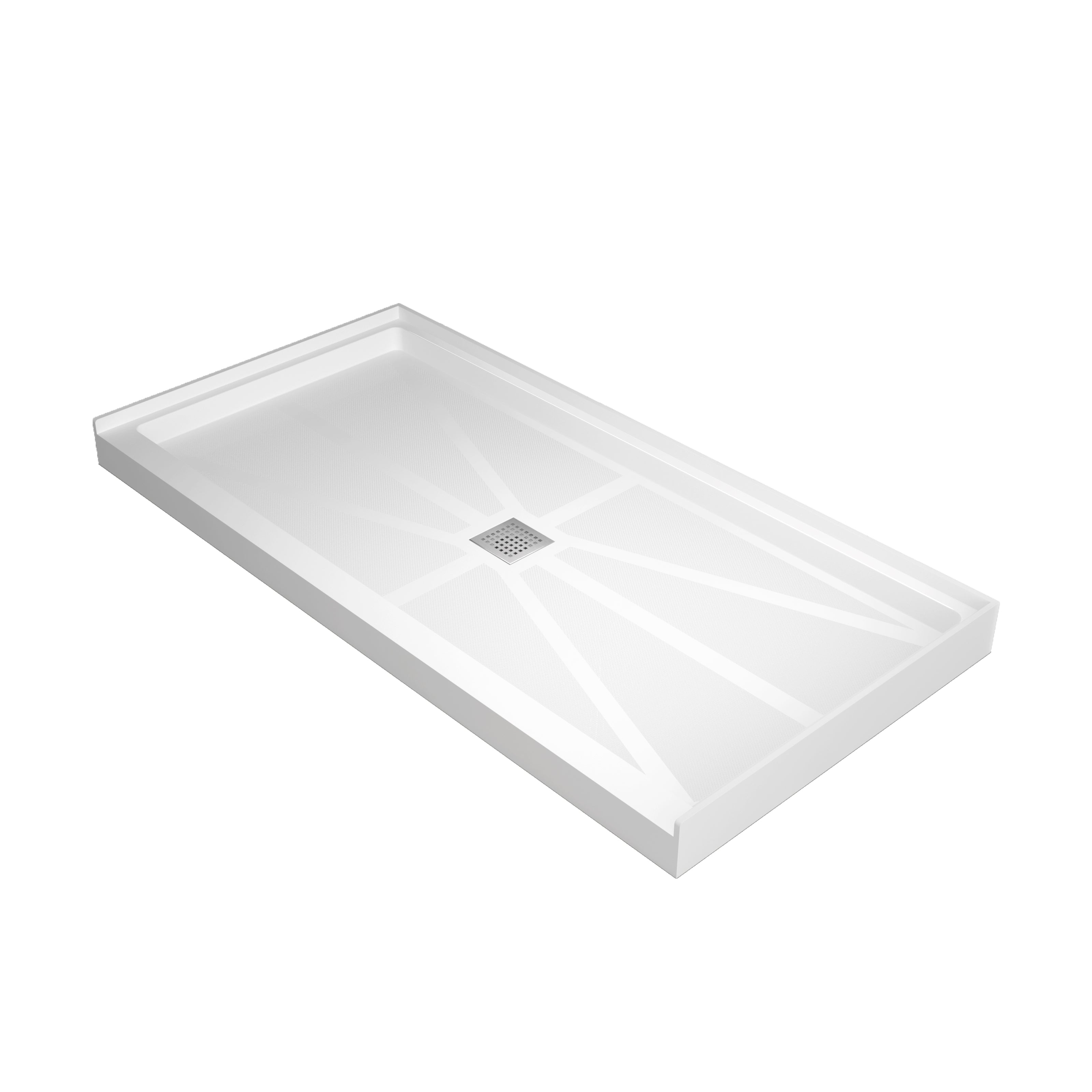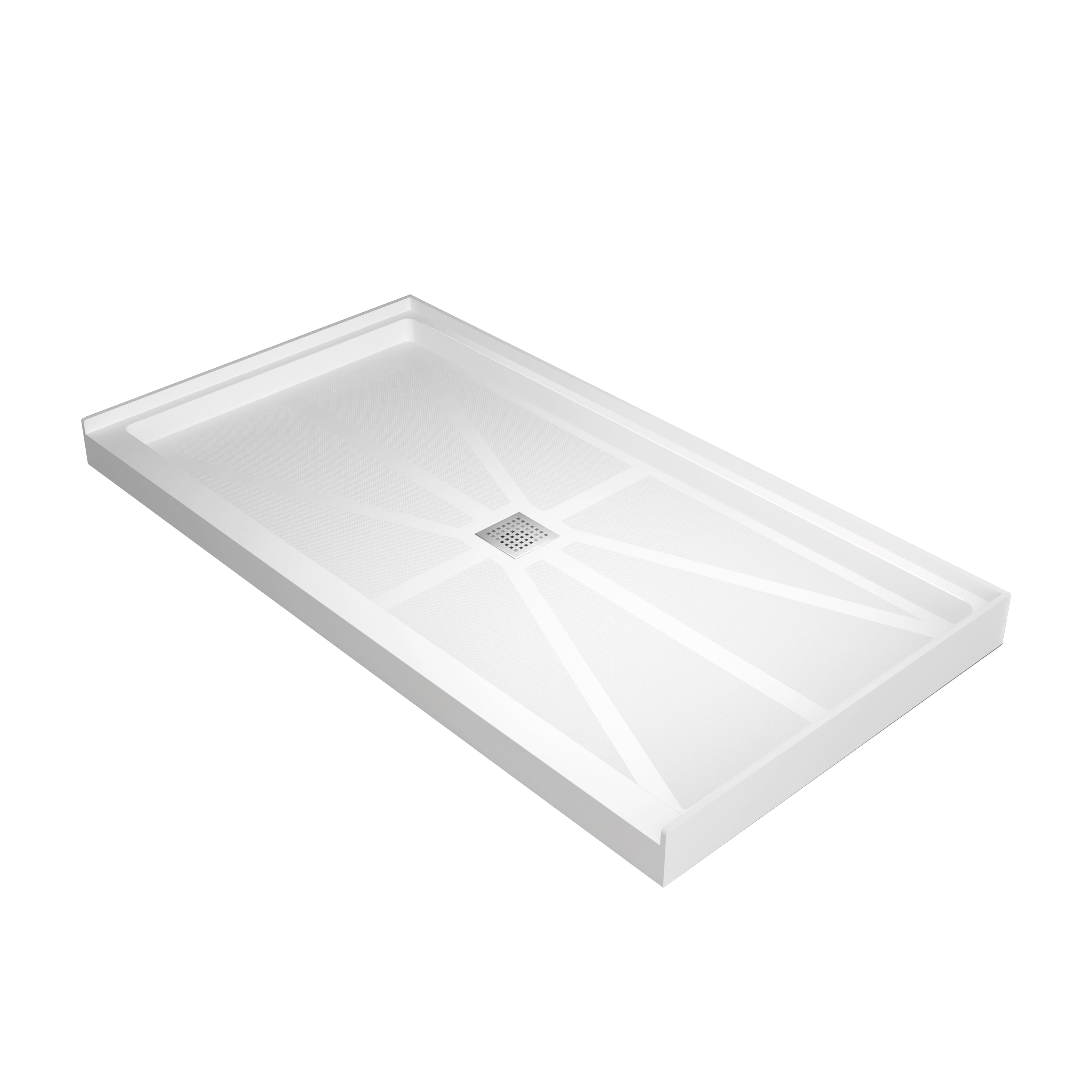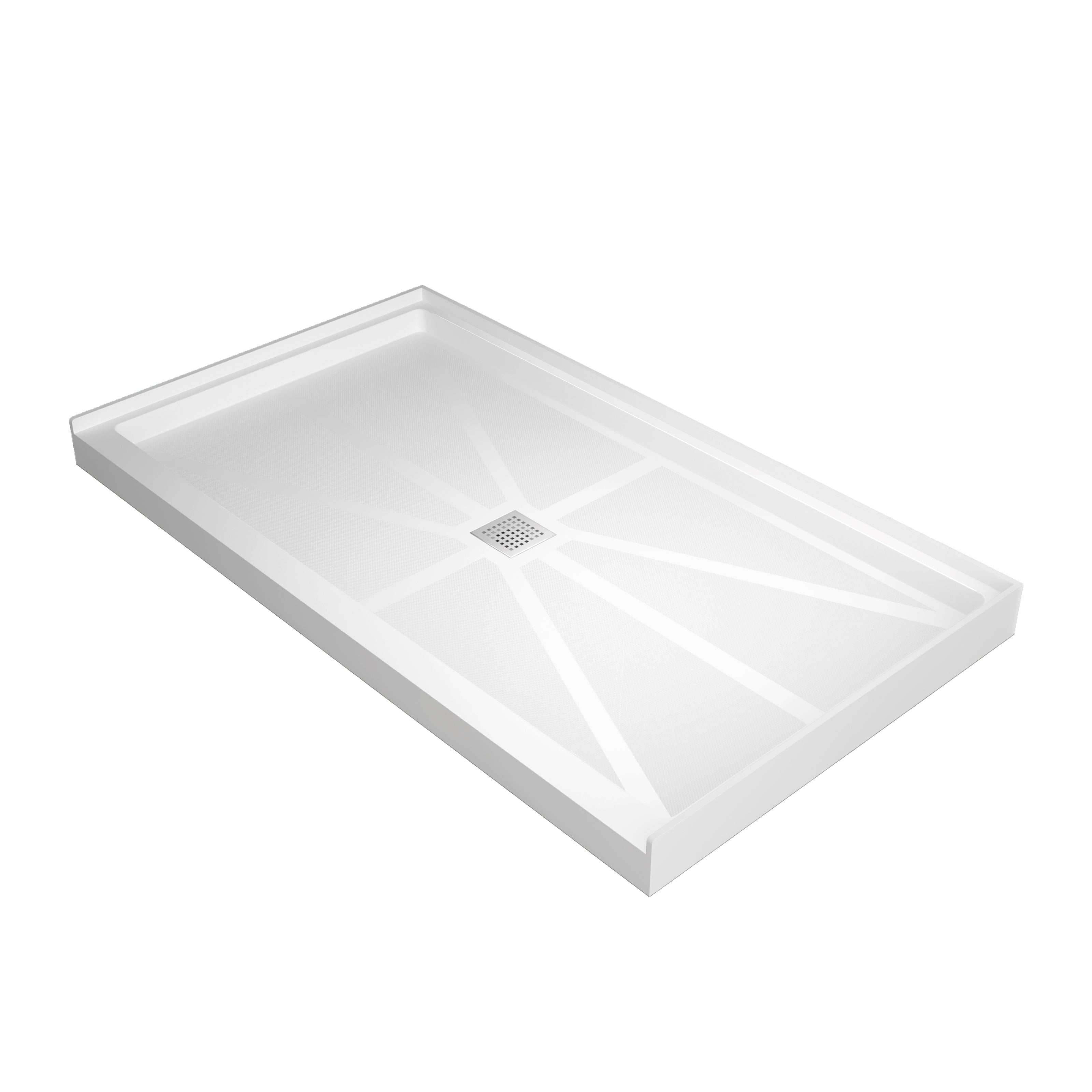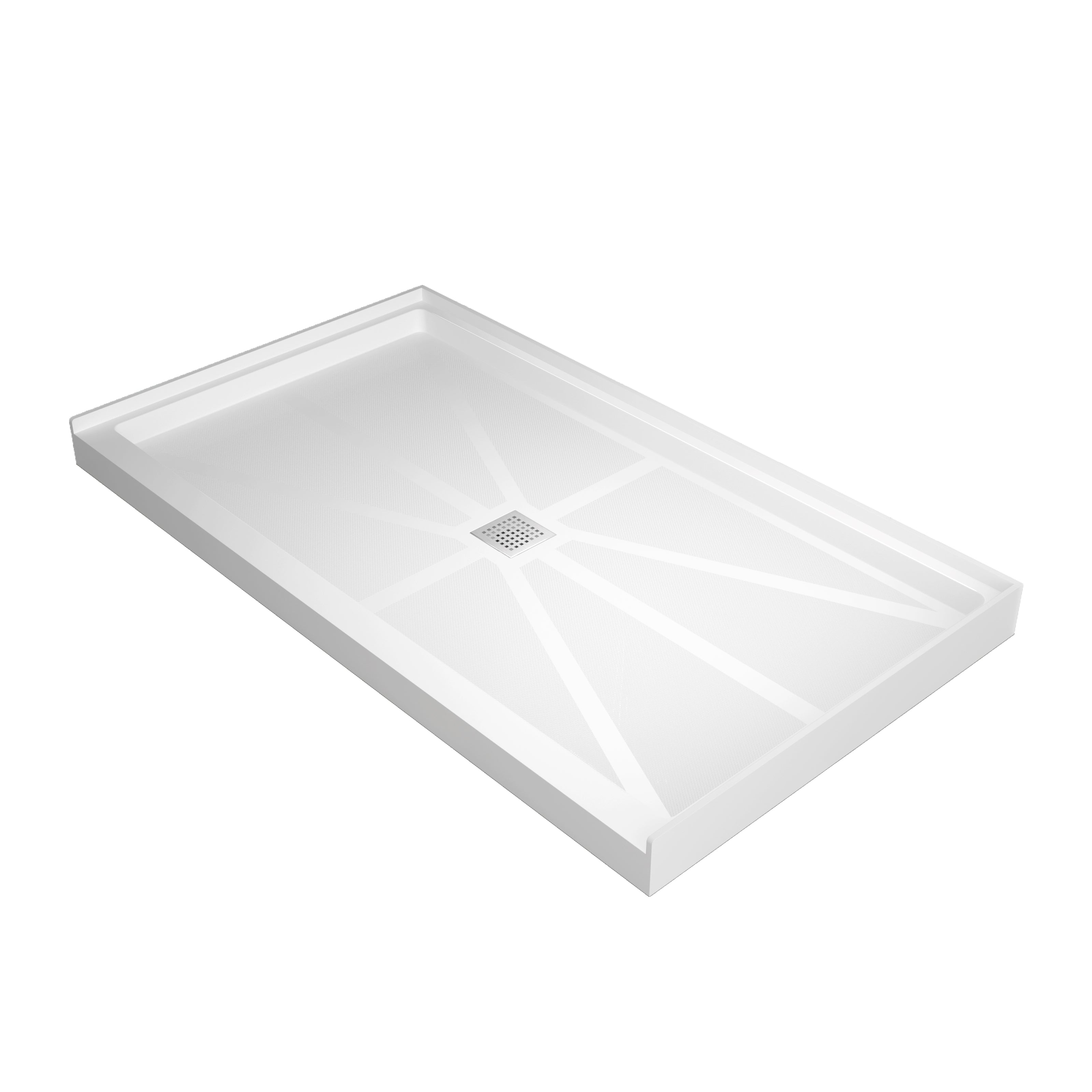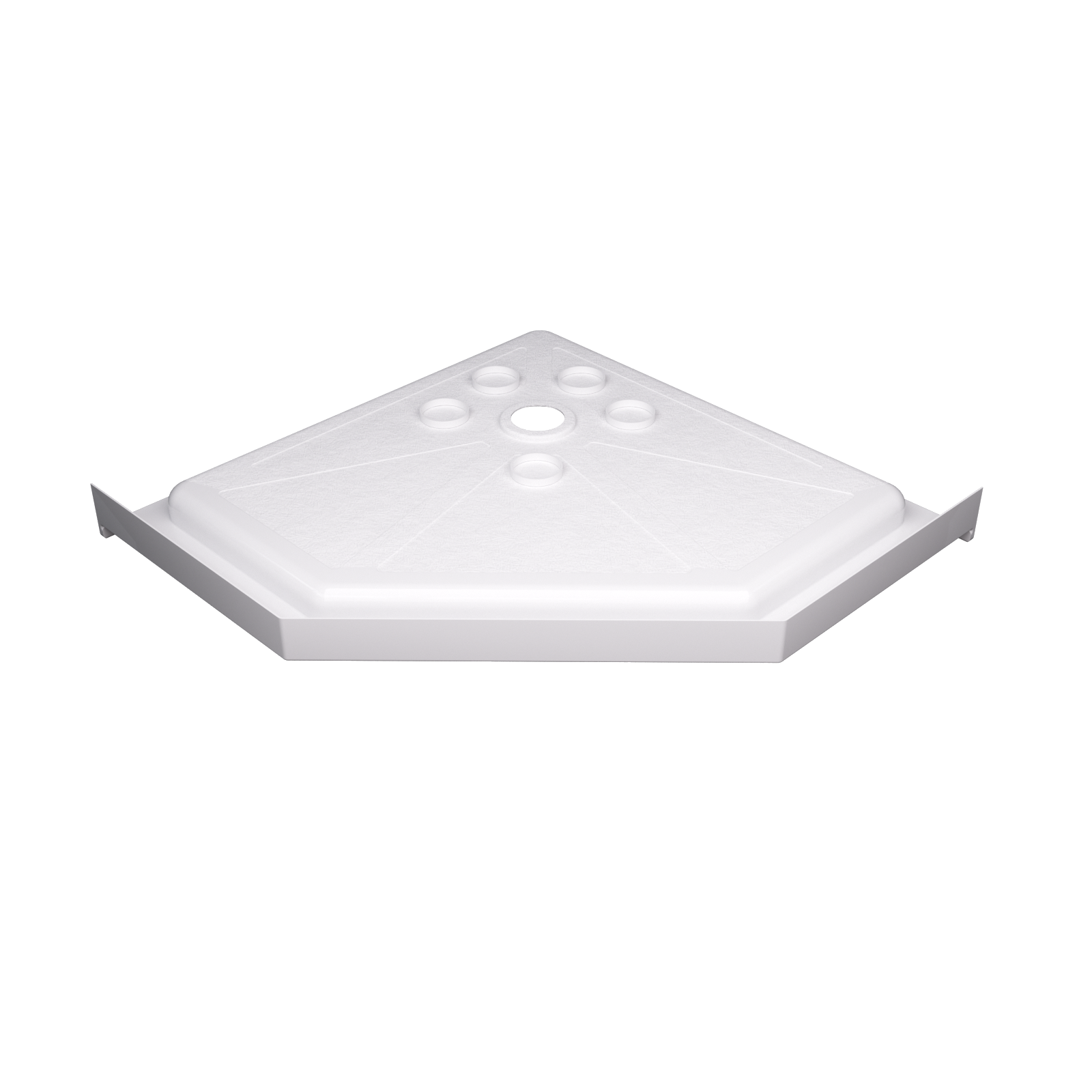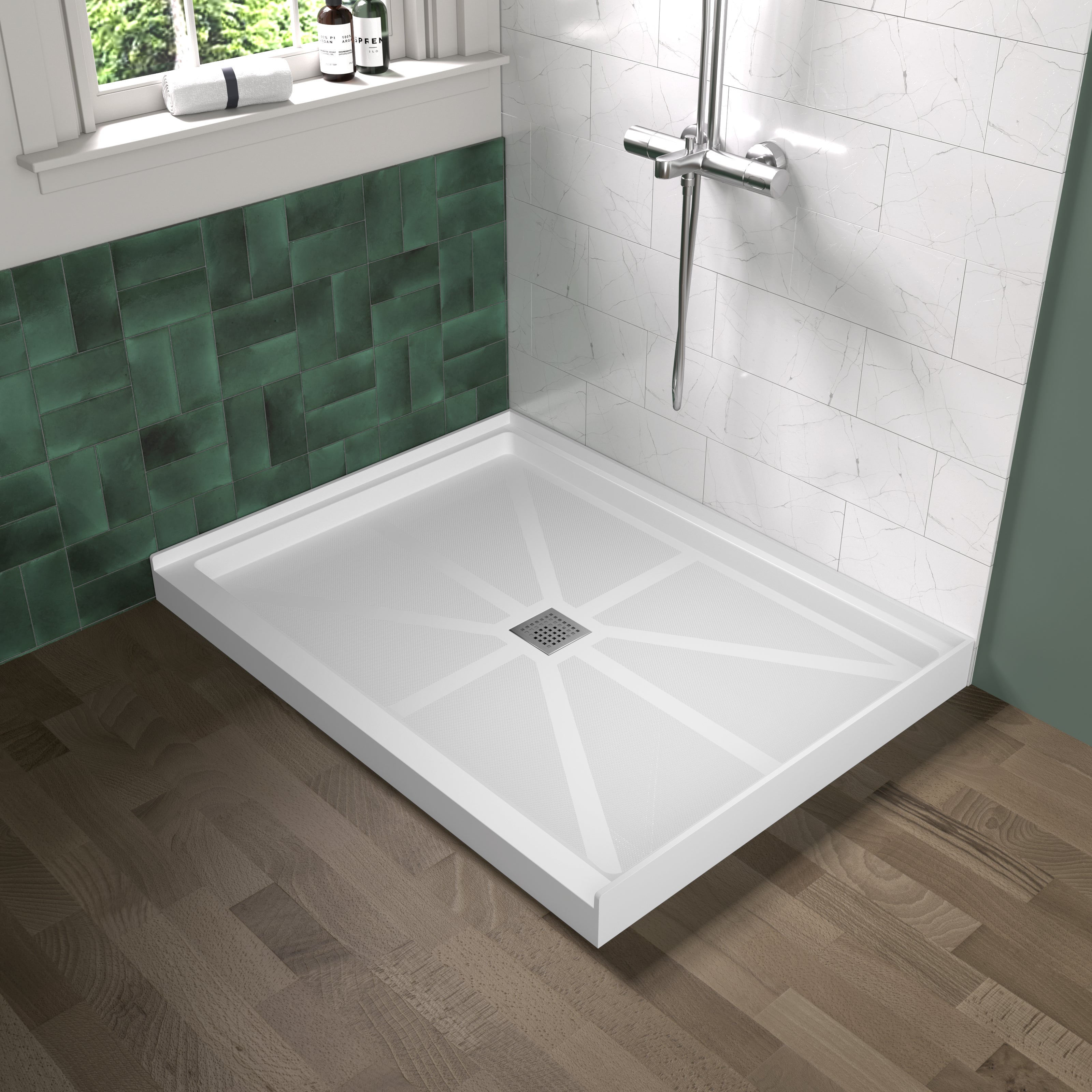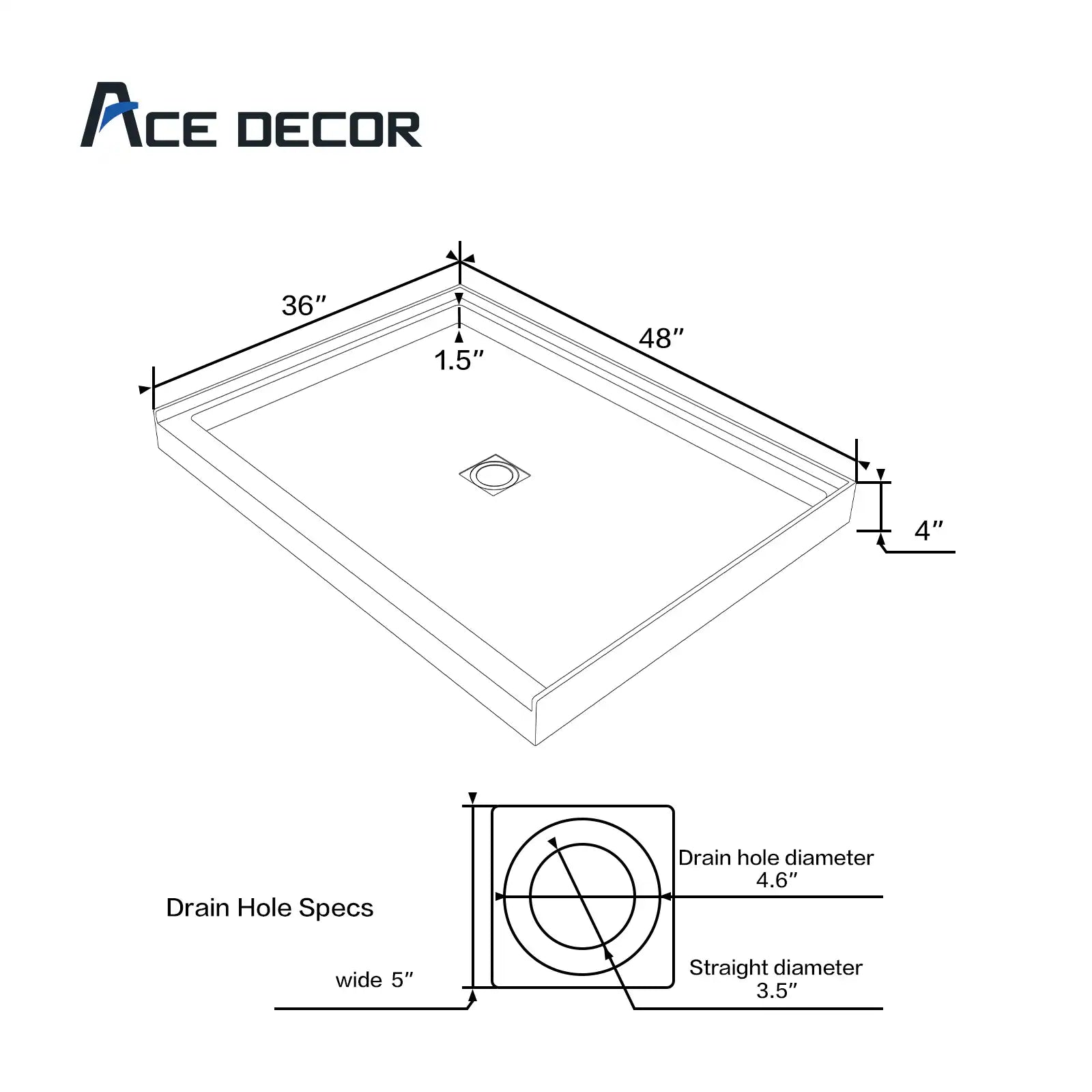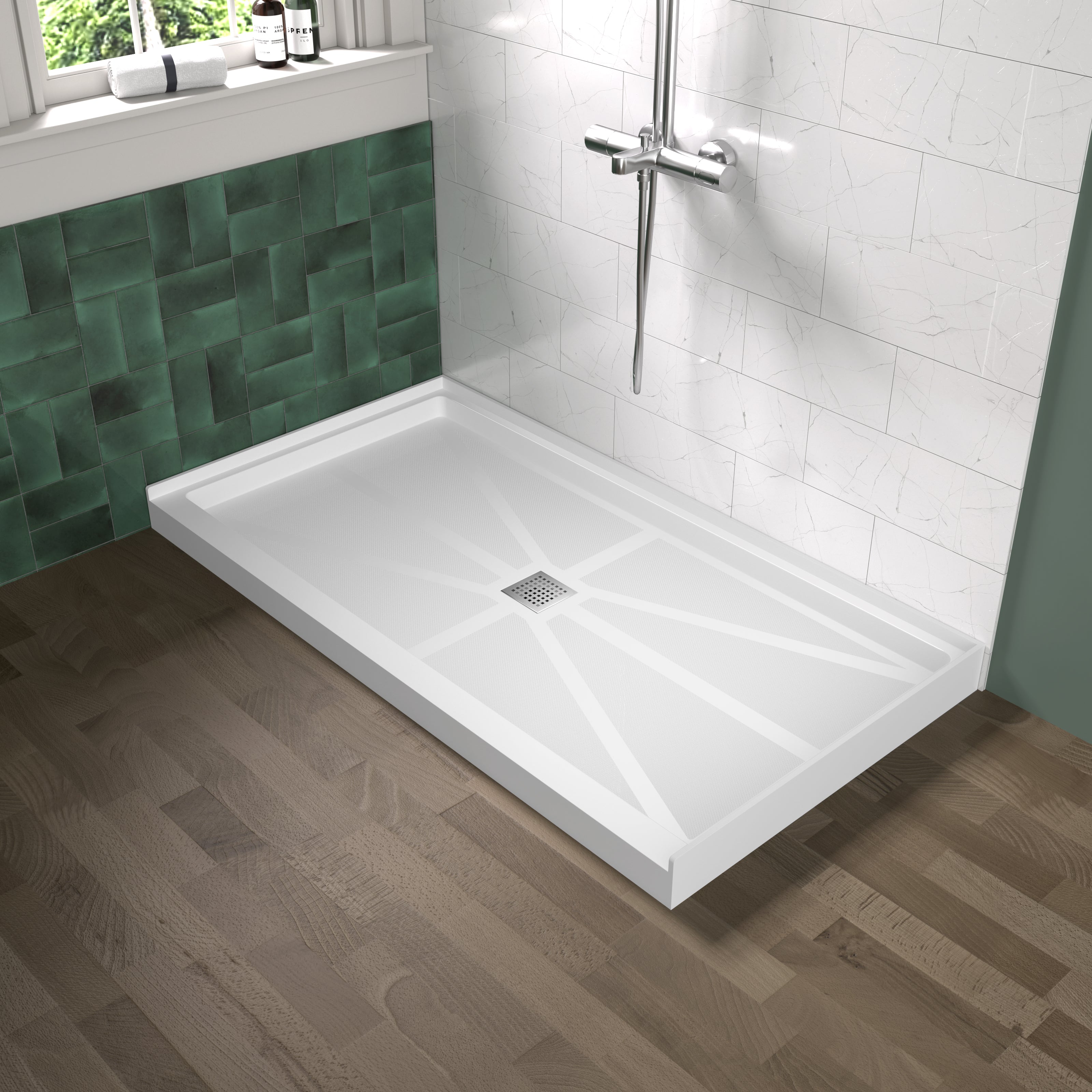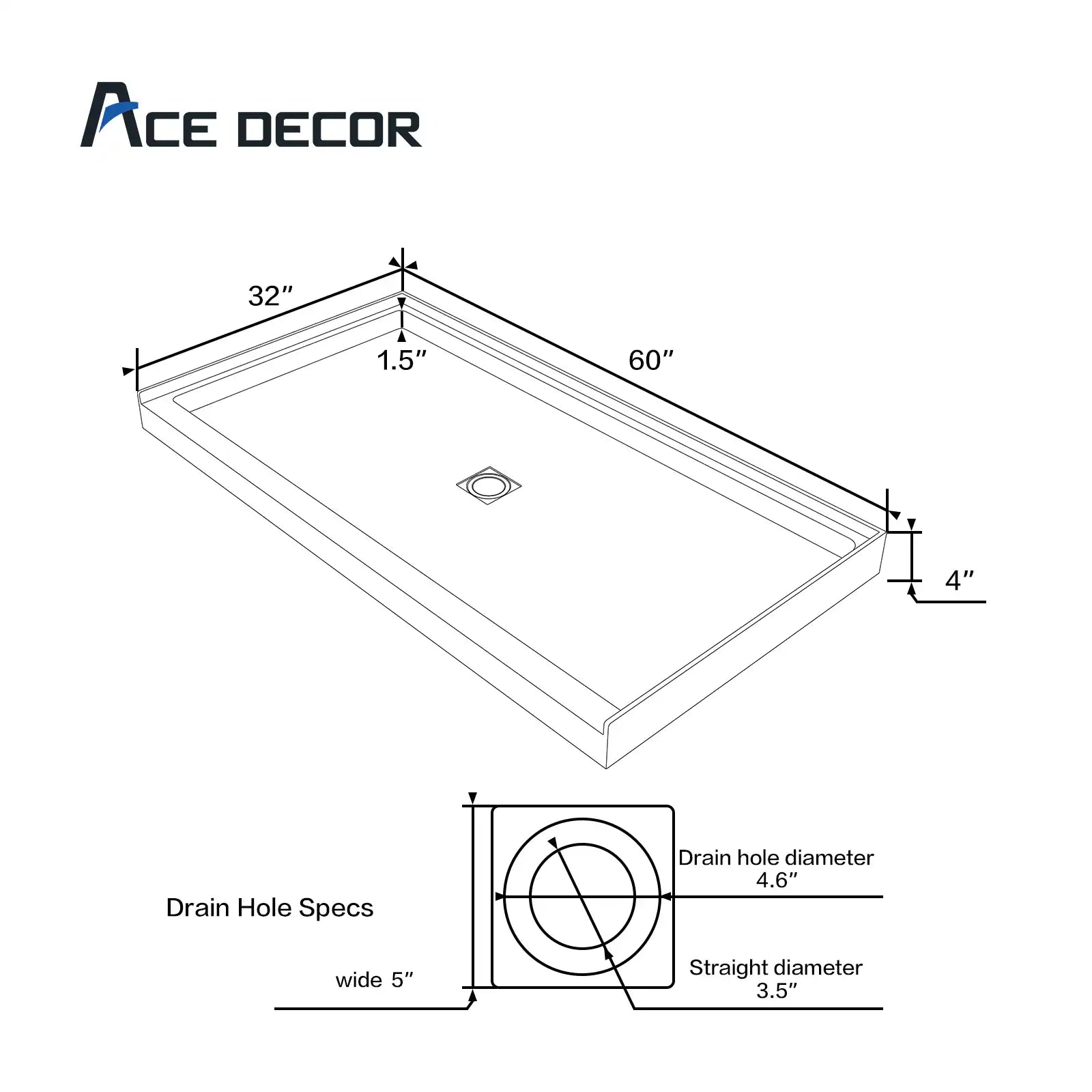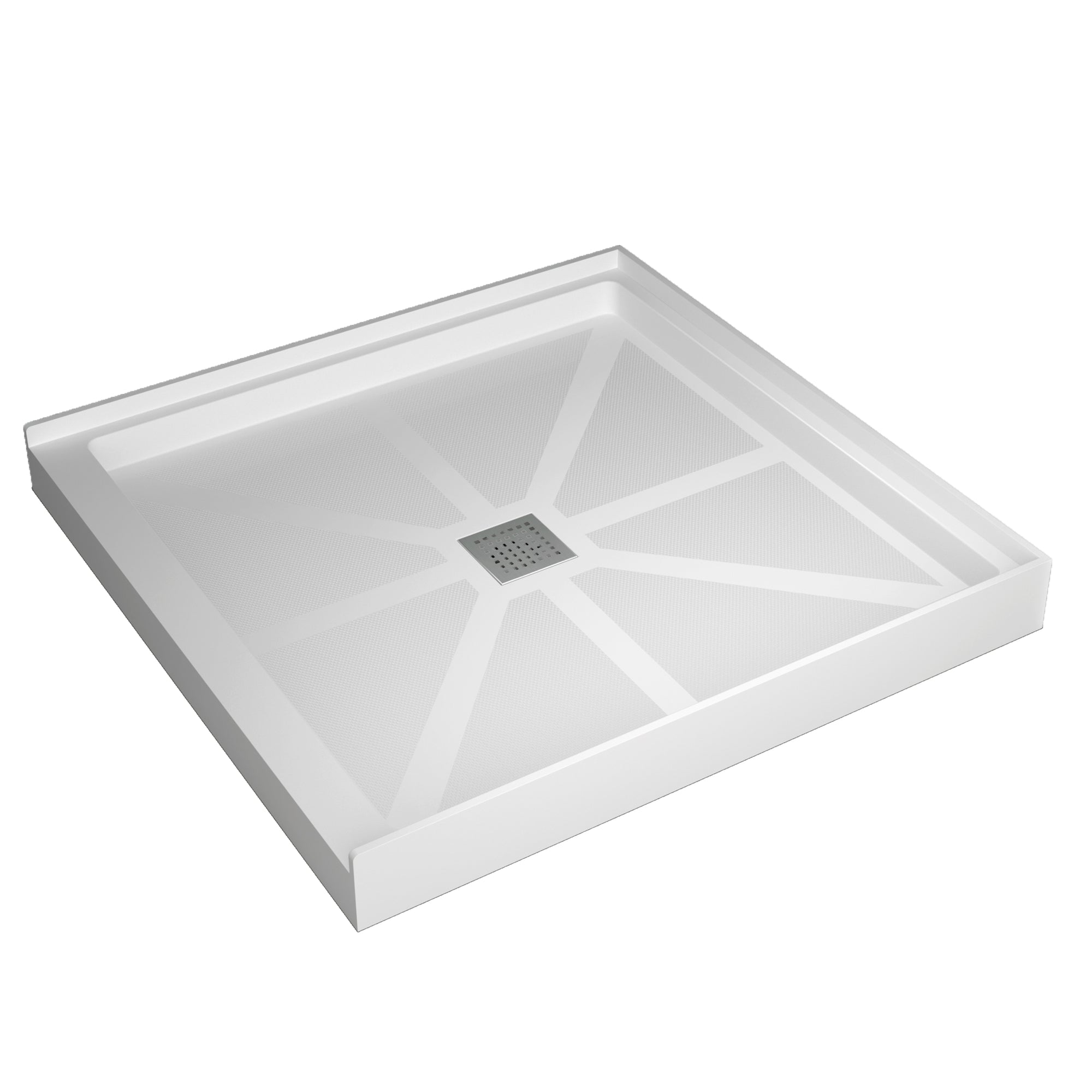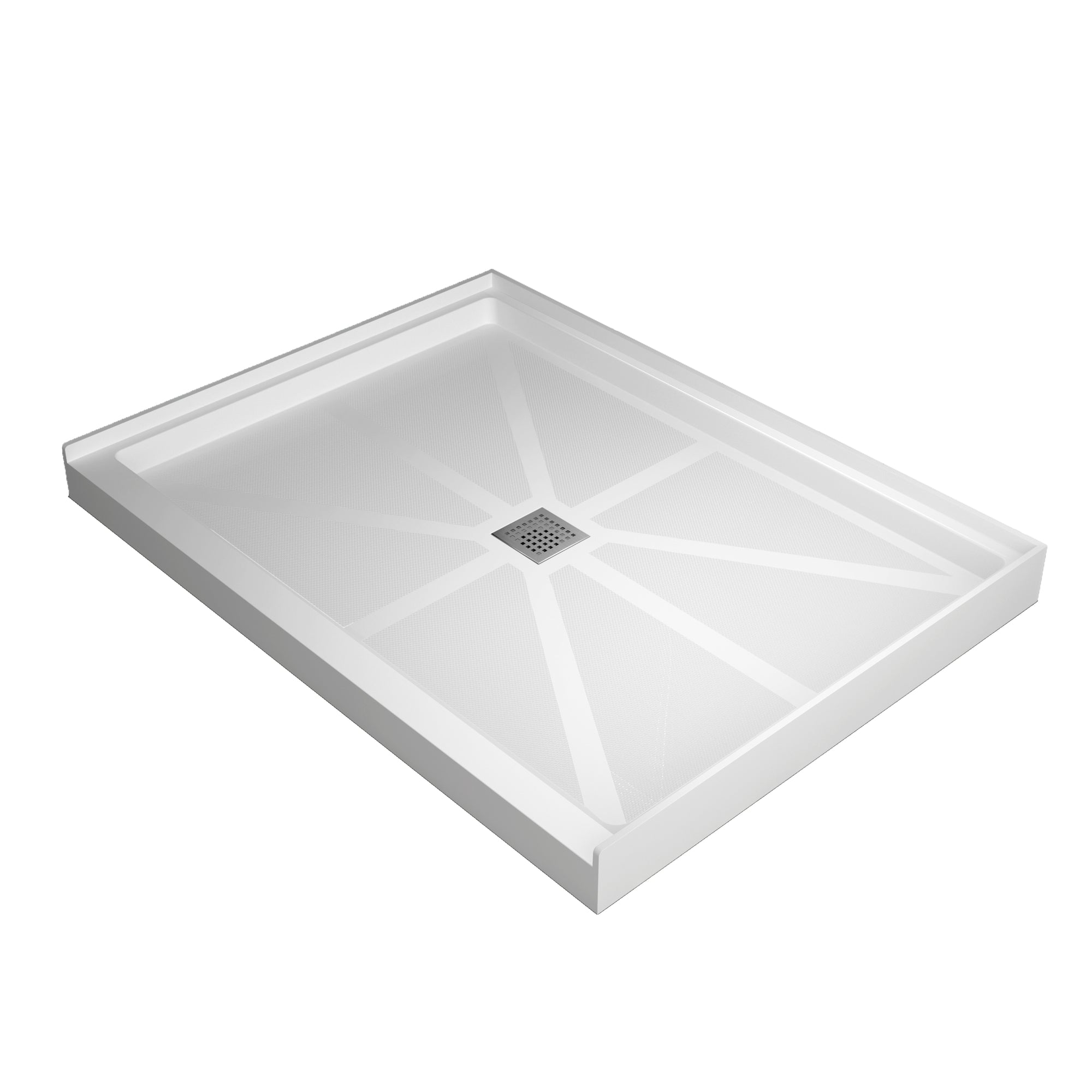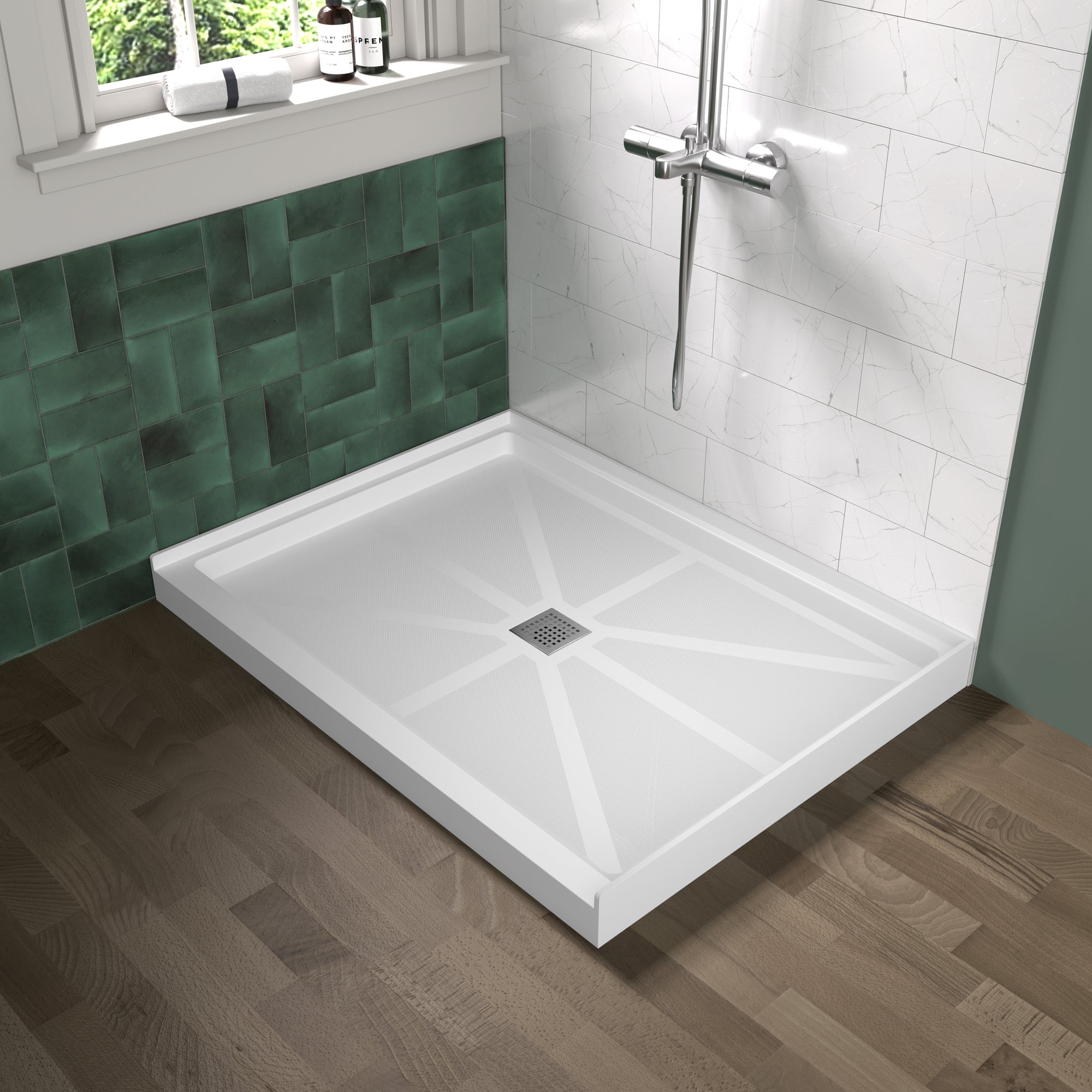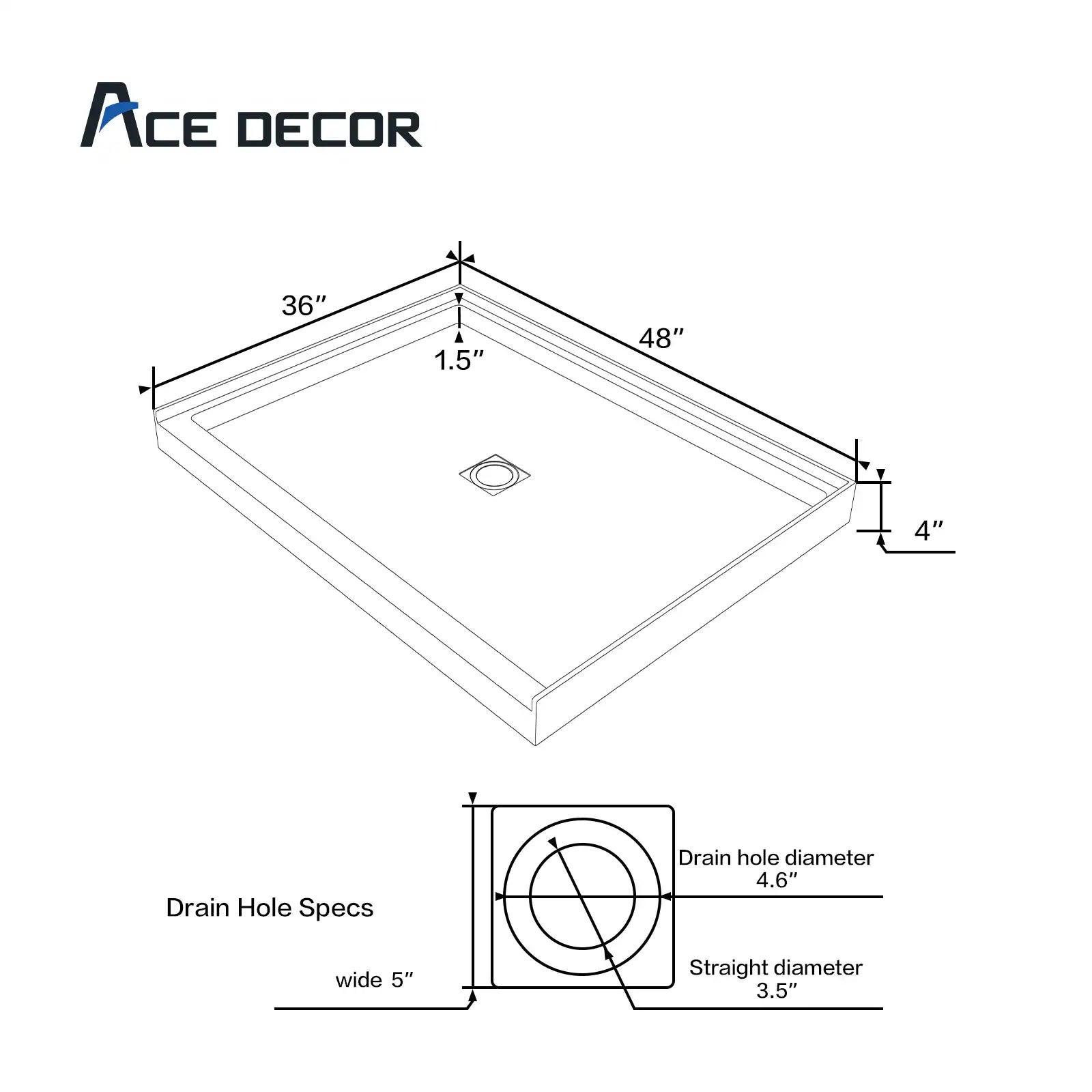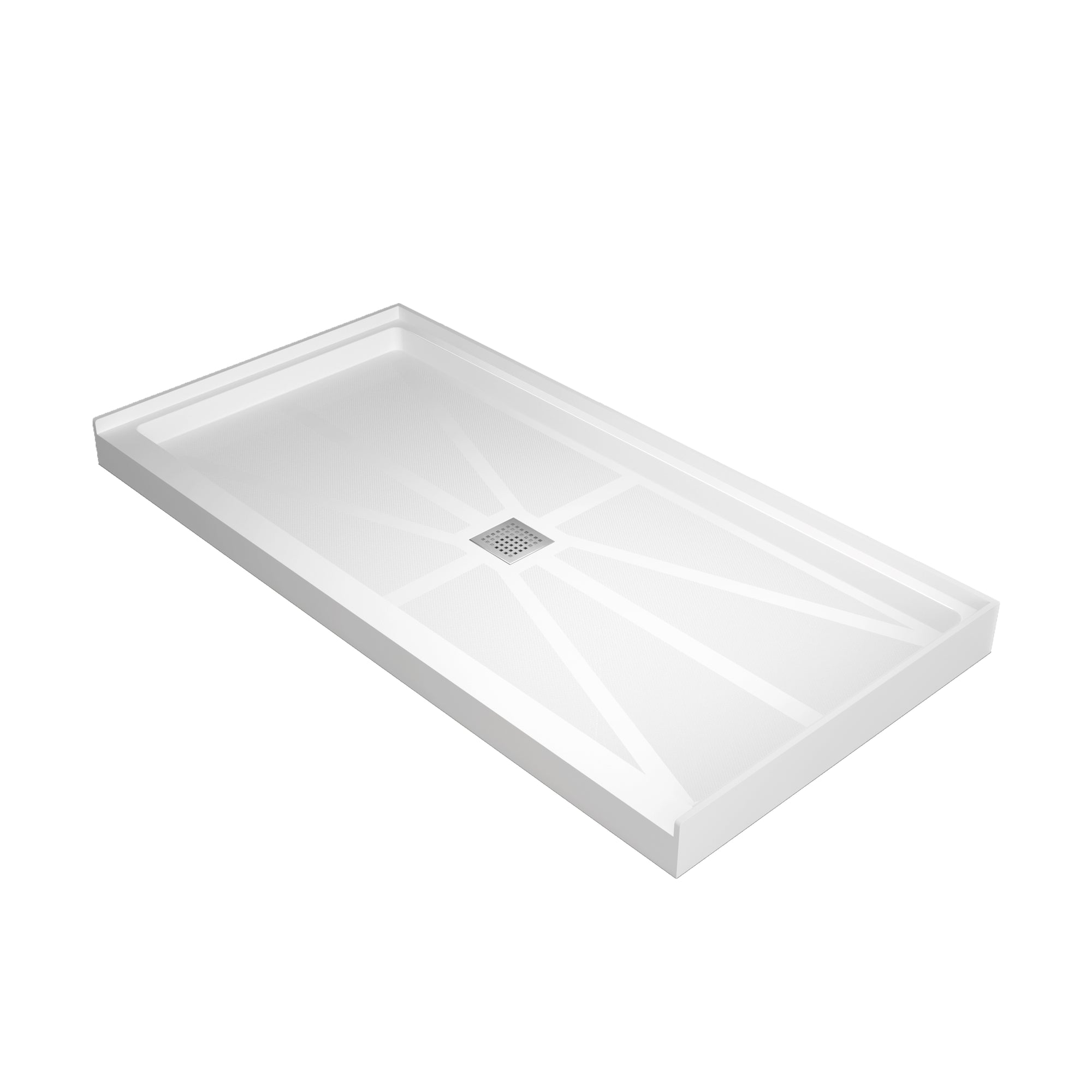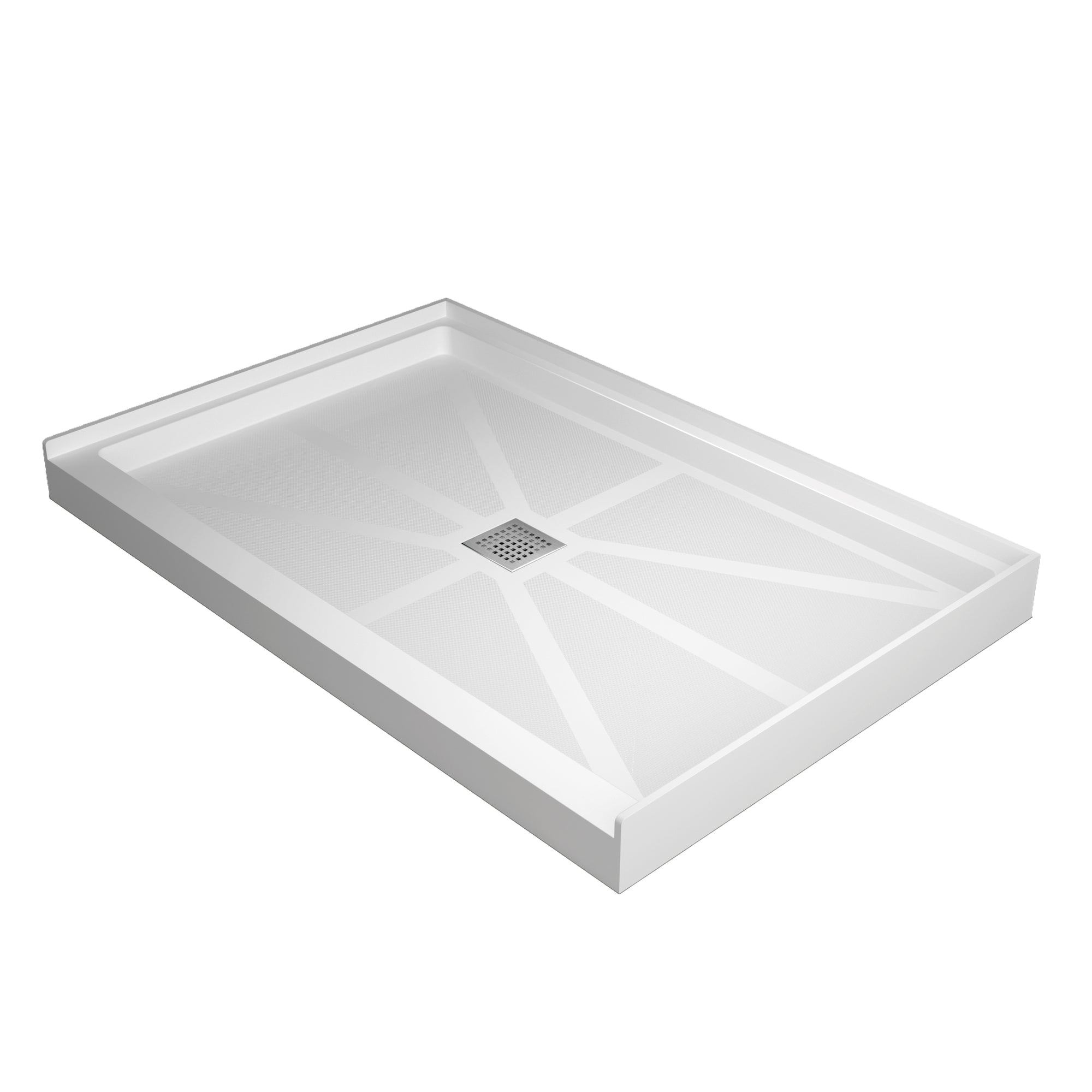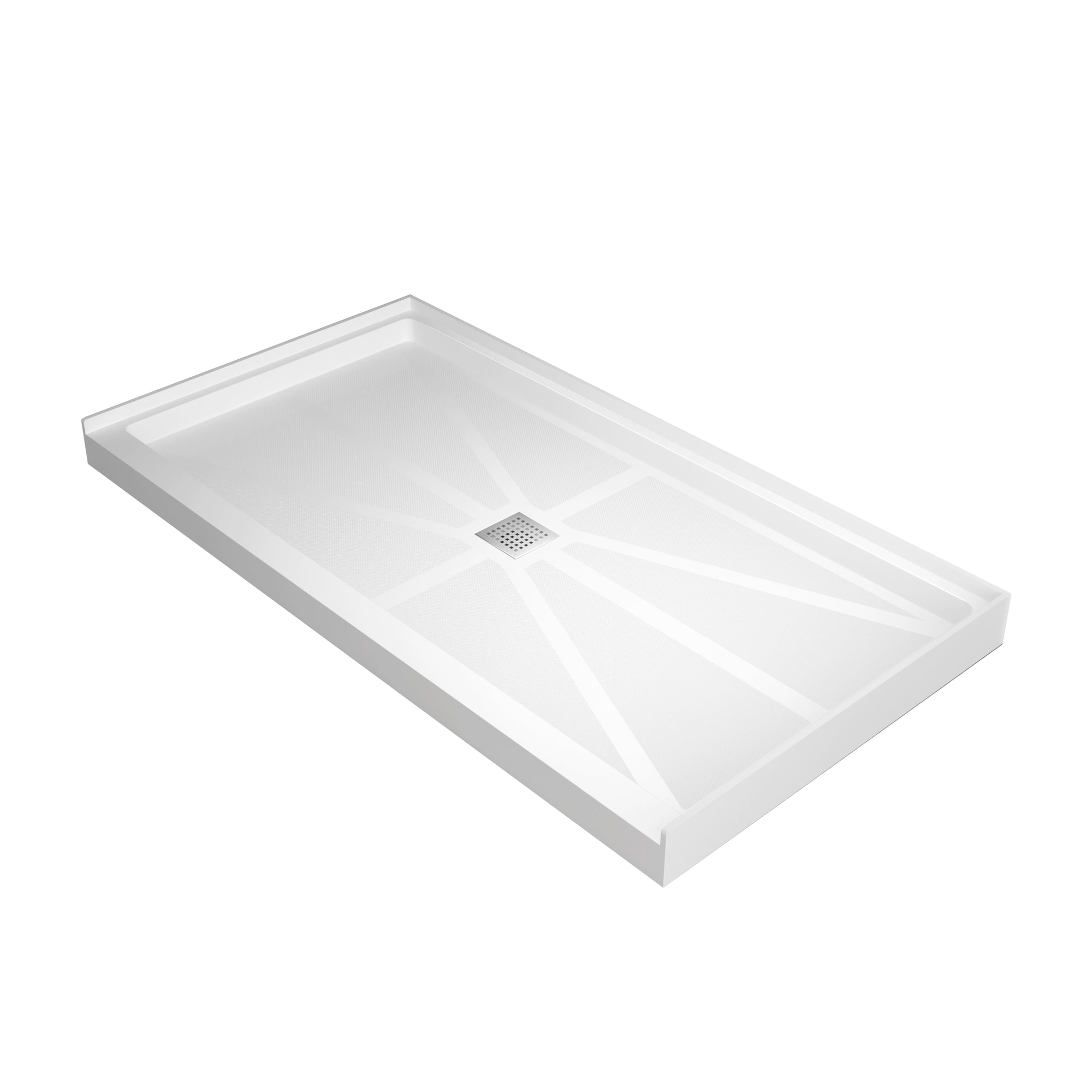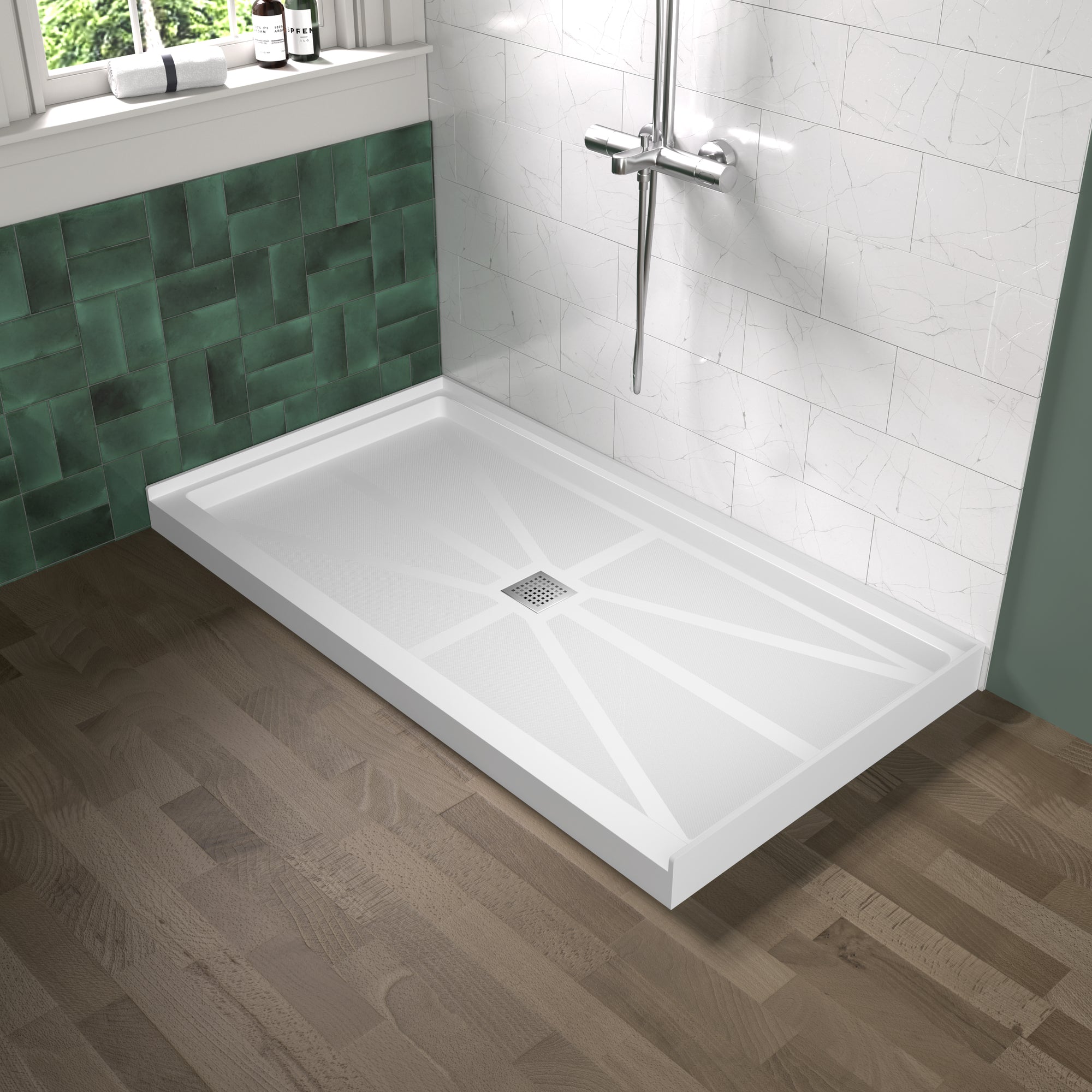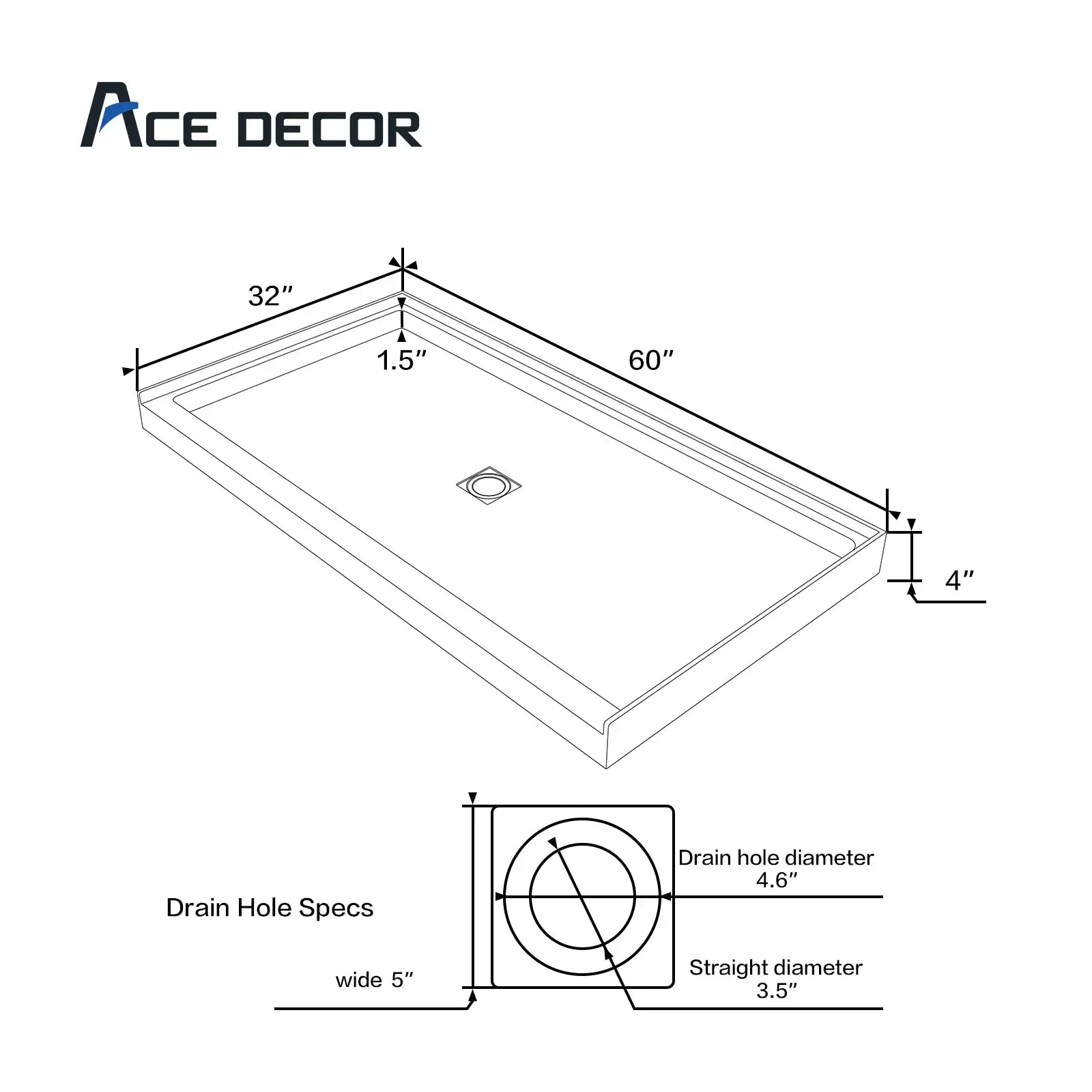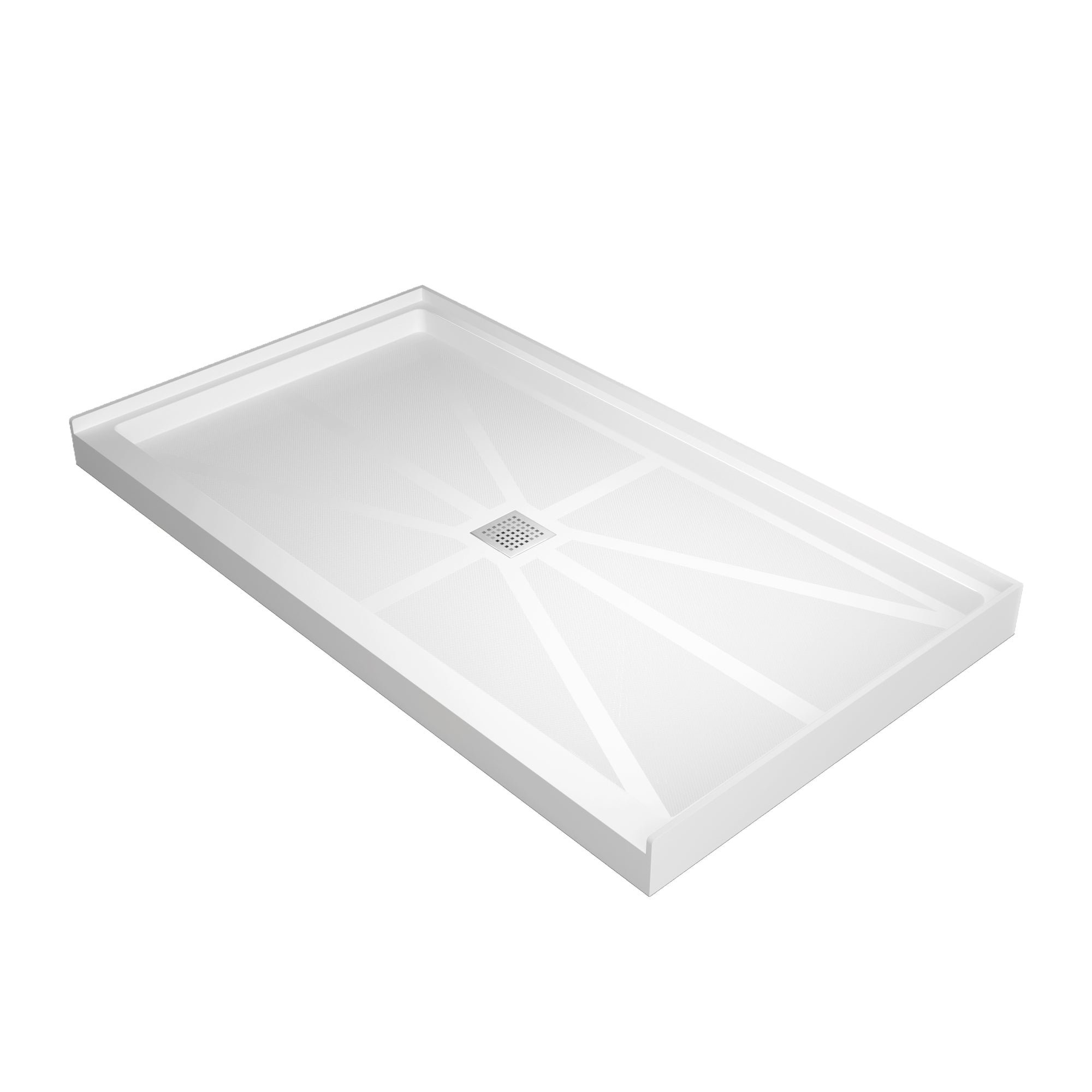When was the last time you got excited about a shower base? Probably never — and that’s okay. Everyone talks about cool tiles, rainfall showerheads, or dream vanities and never about the shower base which quite literally supports the entire experience. But don't worry, there's a lot more to consider than just avoiding the flood when picking out your shower base. It's about safety, durability, and pulling your bathroom design together like the final piece in a stylish puzzle. In this guide, we’ll break down your top choices in shower bases so that you can feel confident about this unsung hero of the bathroom.
Table of Contents:
- Why Your Shower Base Deserves More Attention Than You Think
- Acrylic, Stone Resin, or Tile-Ready? Let’s Break It Down
- Acrylic, Stone Resin, or Tile-Ready? Let’s Break It Down
- Shapes, Sizes & Slopes: What Really Matters in Fit and Flow
- Style Meets Function: Matching Your Base with Bathroom Vibes
- Budget vs. Longevity: The Eternal Bathroom Battle
- Conclusion
- FAQ
Why Your Shower Base Deserves More Attention Than You Think
Imagine it is a cold Monday morning and you are walking into the shower. Your toes are greeted by a smooth, slanted surface that is…well perfect. No pooling water, no slippery danger, no sudden clash into your tiles! This is the beauty of the appropriate shower base. It determines drainage, safety, appearance, even cleaning ease. A well-chosen base gives you peace of mind and a touch of everyday luxury. With so many shower base options out there, from sleek minimalist trays to earthy stone textures, it’s time we stopped treating the base like an afterthought.

Acrylic, Stone Resin, or Tile-Ready? Let’s Break It Down
For materials, it is like picking between sneakers, hiking boots and bespoke leather shoes — all have their advantages. Acrylic base are easy on the budget, light weight and warm to the touch. Ideal for speedy installations and inexpensive renovations. Stone resin? Picture that high-end hotel feel—substantial, solid, and wow factor driven. These beauties are scratch-resistant and give you a premium feel. Tile-ready bases (also called mortar or mud pans) are the blank canvas for your creativity — you can finish them with whatever tile suits your dream aesthetic. But beware: they demand a higher install skill level and waterproofing diligence. Each of these shower base options has its role, depending on your budget, DIY spirit, and bathroom dreams.
Shapes, Sizes & Slopes: What Really Matters in Fit and Flow
No one wants to feel cramped while shampooing or have water puddling in the corner like it’s staging a rebellion. Rectangular bases are the most common, perfect for standard alcove installs. Neo-angle bases work wonders in tight corners, ideal for powder rooms or space-saving renos. Then there’s the curvy quadrant — modern, friendly, and surprisingly roomy. But shape is only half the story. Pay close attention to the slope and drain placement. A properly sloped base means efficient drainage and less scrubbing for you. Trust us, the right shower base option makes you forget about soggy bath mats forever.
Style Meets Function: Matching Your Base with Bathroom Vibes
You don’t wear hiking boots to a dinner party, right? So why settle for a base that doesn’t match your bathroom’s mood? Minimalist and modern? Go for low-profile acrylic in matte white or black. Rustic chic? Stone resin in earthy tones blends beautifully. Coastal or Boho? Tile-ready bases give you the freedom to experiment with colorful patterns or natural stone textures. The base sets the visual anchor for your entire shower area, so don’t overlook it. With so many shower base options available today, there’s one to complement every vibe and vision — yes, even your Pinterest dream board.
Installation Real Talk: DIY, Contractor, or Call Mom?
Alright, here's the scoop: not all shower base installations are created equal. Acrylic models? Basically plug-and-play if your subfloor is prepped. Stone resin? Heavier, sturdier, and a bit more muscle (or professional help) required. Tile-ready? That’s where the fun (and frustration) begins. You’ll need precision leveling, waterproof membranes, and tile skills that go beyond “watched a YouTube tutorial.” If you’re a confident DIYer with time and patience, go for it. But if the phrase "mortar bed" makes you sweat, maybe bring in a pro—or at least a handy relative who owes you one. Choosing among shower base options should factor in how you plan to install it.

Budget vs. Longevity: The Eternal Bathroom Battle
Here’s where things get real. Acrylic bases are generally the cheapest, but you might trade off longevity if your household is more “rowdy teens” than “spa retreat.” Stone resin bases cost more up front but last longer and look premium for years. Tile-ready bases fall anywhere in between, depending on your tile choice and install method. Think about your lifestyle: a guest bath used twice a month can go budget-friendly, but your main shower? That deserves investment. Remember, the shower base is not just a tray — it’s the foundation of your daily refresh. Picking the right shower base option now could mean fewer repairs (and wet socks) later.

Conclusion
Selecting a shower base might seem like a boring decision, but it doesn’t have to be. Whether you are redoing your entire bathroom or simply replacing the basics, a little knowledge of your shower base choices can enhance both style and performance. Your base is the stage where you cleanse away the day to prepare for the next, from simple acrylics to decadent stone resin or custom-tiled wonders. It is the unsung hero of the bathroom — quietly doing its job while you belt out of tune in the shower. Explore your options, align them with your needs, and don’t be afraid to mix practicality with a little panache.
FAQ
1. What is the most durable shower base option for heavy daily use?
A: Stone resin is typically the most durable option. It’s solid, scratch-resistant, and can handle daily wear and tear like a champ. Plus, it looks great doing it.
2. Can I install a shower base myself or do I need a pro?
A: It depends on the material and your skills. Acrylic is DIY-friendly. Tile-ready bases? Not so much unless you’ve got serious experience. When in doubt, hire help.
3. How do I know which shower base size fits my bathroom?
A: Measure twice, buy once. Standard sizes are common, but always check your existing space (and where the drain sits!). If you’re renovating, you may have more flexibility.
4. Are stone resin bases really worth the price?
A: If you value durability, aesthetics, and long-term savings, then yes. They’re more expensive up front but often outlast cheaper options by years.
5. What’s the difference between a tile-ready base and a pre-finished one?
A:
Ground Rules: Picking the Best Shower Base for Your Space
Tile on Shower Base vs Acrylic Base: Which Is Best for Your Bathroom?
Shower Base Colors: How to Choose the Best Base Colors for Your Bathroom
